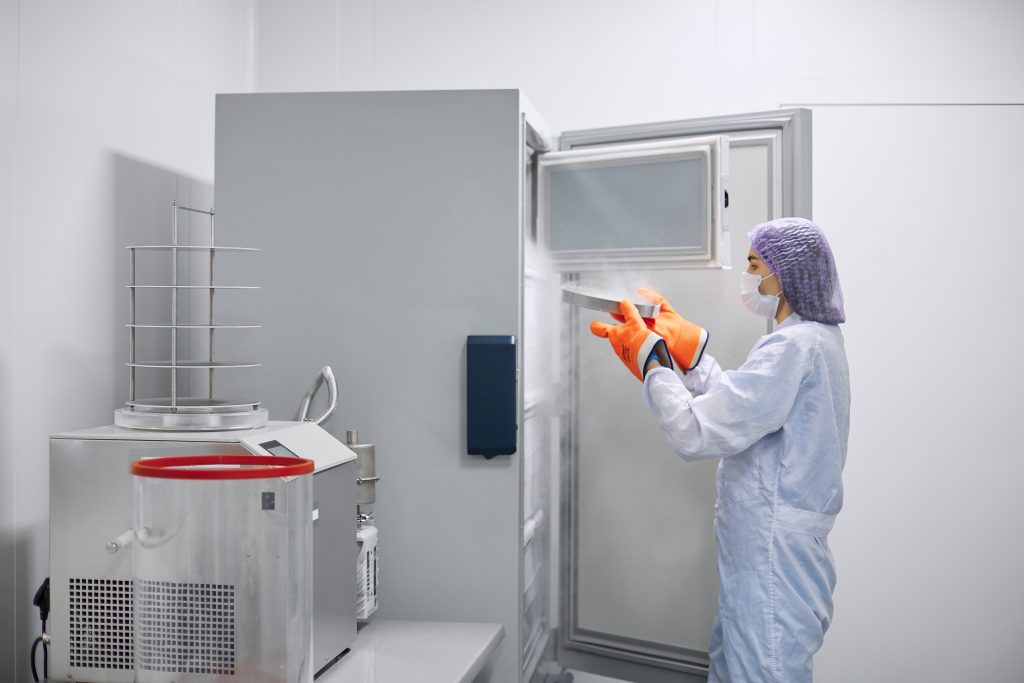
LEAF: The Molecular Cellular Function division is chilling up…
Blog by Lydia Wunderley, LEAF and 6R champion, heading the Faculty’s recycling working group.
Following on from the Manchester Institute for Cancer Research blog, nine principal investigators (PIs) from the Molecular Cellular Function division have turned their ULT freezers up to –70C.
A special thank you to: Philip Woodman, Viki Allan, Joan Chang, Alex Davies, Ximena Soto, Gino Poulin, Martin Lowe, Hilary Ashe and Mark Ashe.
In the lab, the top two energy consumers are fume cupboards and ultra-low temperature freezers (ULTs). Based on a typical 4-bedroom house consuming 11.2 kWh/day in the UK, on average, a ULT set at -80°C the equivalent of 1.2 homes. In FBMH, we have about 600 ULTs!
The energy consumption of your ULT depends on the ambient temperature, and how often the door is opened. Every time a sample is retrieved, the temperature rises and must be lowered again. ULTs also release a lot of heat, and we use additional energy to cool them down.
Actions we can take to save energy with ULTs and lengthen their life span:
- Ensure your freezers are well maintained and establish an effective sample records system and racking to minimise sample retrieval time.
- Minimise storage space by removing any unnecessary samples, consolidating, and using smaller containers when possible.
- Chill up by setting the temperature at -70°C.
Until relatively recently all freezers were set at -65°C or -70°C and the types of samples being stored have not changed significantly. The storage temperature decreased because manufacturers designed compressors which could reach lower temperature.
Many Institutions have switched back to -70°C or -75°C
It can be a big decision to be made by PIs, sometimes it may require an agreement with regulators such as the HTA. We have put together a short Powerpoint to review the evidence on chilling up found in the literature so far.
If you would prefer to carry out some tests on sample integrity before switching the temperature of your freezers, please contact May Tassabehji m.tassabehji@manchester.ac.uk who has started a long-term project of testing sample integrity at various cold storage temperatures.

0 Comments